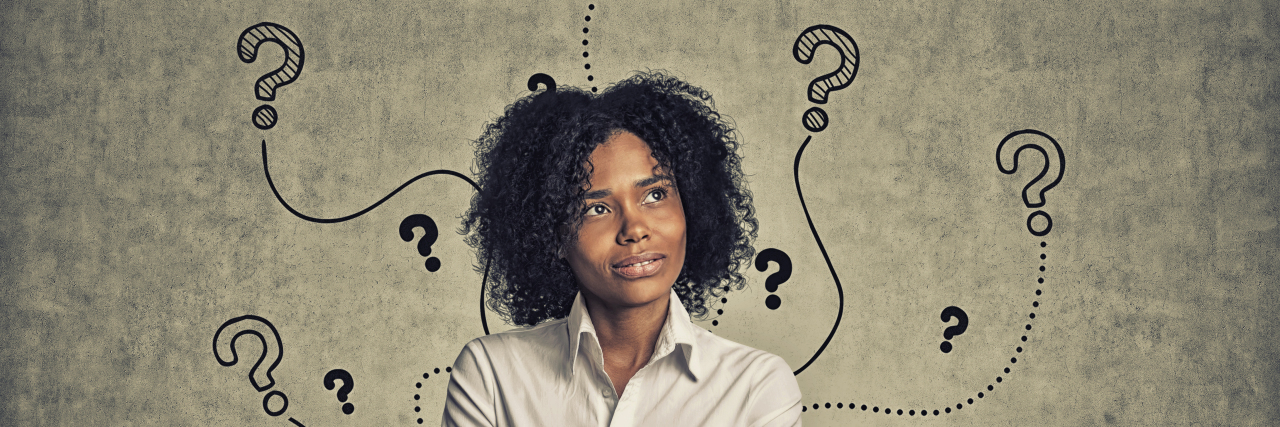A diagnosis doesn’t make a person disabled. Some live with undiagnosed conditions for months, years, decades, sometimes even lifetimes. This doesn’t mean their disabilities affect them any less than those with a name. Being undiagnosed is scary, and it can be hard work navigating the conversations that come along with it.
Although all illnesses, diagnosed or not, are valid, sometimes being undiagnosed doesn’t always feel valid. Often the first question we’re asked when we say we’re unwell or disabled is our diagnosis. Having to explain that there isn’t a diagnosis often leads to uncomfortable conversations which include suggestions of random diagnoses that don’t fit the symptoms, suggestions to “just get a new doctor” and of course, “my aunt’s neighbor’s sister’s hamster had that symptom and it was ____.”
What I wish others knew about being undiagnosed:
1. It’s not always good news when tests come back as inconclusive.
A conclusive test may offer validation, diagnosis, and possibly even a treatment or cure.
2. Even though it’s hard to understand, that doesn’t mean the undiagnosed person is exaggerating.
You don’t have to understand why something is happening to be able to support someone.
3. They’ve probably already tried or researched everything you’re about to suggest.
They are not in this position through laziness and lack of knowledge.
4. “How are you still alive?” is never an appropriate question.
Often you don’t understand how hard they are battling to stay afloat.
5. Being called a “medical mystery” isn’t the cool joke or compliment you think it is.
There are very limited services and resources for people with such complex symptoms.
6. Lack of diagnosis does not reduce the severity of the symptoms.
Symptoms can have a significant impact on a person’s life and not be diagnosed.
7. Don’t say “at least it’s not…”
This invalidates their experiences and suggests well-known conditions have a bigger impact on a person’s life than those with unknown and/or rare conditions.
8. Their “interesting medical story” isn’t something to chat about with your friends, relatives and neighbors.
Sharing someone’s symptoms and experiences without their consent isn’t OK, no matter how interesting the story may be.
9. Prepare yourself that they may never get a diagnosis, or it could take years.
Some people live undiagnosed for their whole lives, so stop asking “Do you know what it is yet?”
10. Although it has no name, we still need support.
A more helpful question when talking to someone who’s undiagnosed is “how best can I support you?”
Being undiagnosed can have a significant impact on some relationships, as many choose not to believe the person’s story without a doctor confirming it with a name they know. If they get a diagnosis and want to share it, they will. When that happens, don’t suddenly believe them because you needed years and teams of doctors to confirm what they have been telling you all along.
As someone who has both diagnosed and undiagnosed disabilities, I can say that being undiagnosed brings a whole new set of difficulties. It’s a fight every day to get people to believe you, including doctors, friends and family. It’s hoping that test results come back showing something other than ‘normal’ to validate what you’re going through. It’s having to convince medical professionals that these symptoms are real and not exaggerated. It’s not being able to fill in the forms to get support needed because they all ask for the diagnosis. It’s the isolation as people start to give up on you or choose not to believe you. But diagnosed or not, we know our bodies best, and our experiences are still valid. Diagnosis or no diagnosis, we deserve care & treatment.
This story originally appeared on A Spoonful of Pain.
Getty image by Ismagilov.

